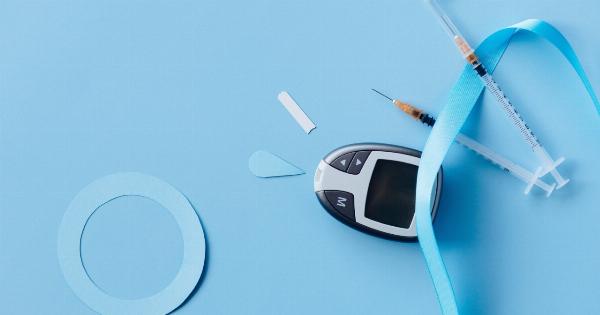Diabetes is a chronic condition that affects how the body processes blood sugar (glucose). There are several different types of diabetes, with the most common being type 1 and type 2.
In this article, we will explore the symptoms, causes, and treatment options for diabetes, providing a comprehensive overview of this widespread health condition.
Symptoms of Diabetes
The symptoms of diabetes can vary depending on the type and severity of the condition. However, some common symptoms include:.
- Excessive thirst
- Frequent urination
- Unexplained weight loss
- Extreme hunger
- Fatigue and weakness
- Blurred vision
- Slow-healing cuts and bruises
If you are experiencing any of these symptoms, it is important to consult with a healthcare professional for an accurate diagnosis.
Causes of Diabetes
The causes of diabetes can vary depending on the type of diabetes:.
Type 1 Diabetes:
Type 1 diabetes is an autoimmune disease in which the immune system mistakenly attacks and destroys the insulin-producing cells in the pancreas.
The exact cause of this immune response is unknown, but it is thought to involve genetic and environmental factors.
Type 2 Diabetes:
Type 2 diabetes is primarily caused by a combination of genetic and lifestyle factors, such as:.
- Obesity
- Poor diet
- Lack of physical activity
- Family history of diabetes
- Insulin resistance
Gestational Diabetes:.
Gestational diabetes is a type of diabetes that occurs during pregnancy. It is believed to be caused by hormonal changes and the body’s inability to effectively use insulin.
Gestational diabetes usually resolves after giving birth, but it increases the risk of developing type 2 diabetes later in life.
Treatment Options for Diabetes
While there is currently no cure for diabetes, the condition can be managed through various treatment methods:.
Lifestyle Changes:
Lifestyle modifications are crucial in managing type 2 diabetes. These may include:.
- Healthy eating: Following a well-balanced diet and monitoring carbohydrate intake.
- Regular exercise: Engaging in physical activity to maintain a healthy weight and improve insulin sensitivity.
- Weight management: Achieving and maintaining a healthy weight to reduce the risk of complications.
Medication:
Depending on the type and severity of diabetes, medication may be prescribed:.
- Insulin: People with type 1 diabetes and some with type 2 diabetes may require insulin therapy to regulate blood sugar levels.
- Oral medication: Various oral medications are available to lower blood sugar levels and improve insulin sensitivity.
Monitoring and Self-care:
To effectively manage diabetes, regular monitoring of blood sugar levels is essential. This may involve:.
- Self-monitoring blood glucose: Regularly checking blood sugar levels using a glucometer.
- HbA1c testing: Periodic blood tests to measure average blood sugar levels over a few months.
- Foot care: Paying attention to foot health and promptly treating any cuts or infections.
Diabetes Education and Support:
Education and support are crucial components of diabetes management. Individuals with diabetes can benefit from:.
- Diabetes education programs: Learning about diabetes management, nutrition, and lifestyle adaptations.
- Support groups: Connecting with others who have diabetes to share experiences and concerns.
Conclusion
Diabetes is a complex condition that requires ongoing management, but with proper treatment and lifestyle changes, individuals with diabetes can lead healthy and fulfilling lives.
It is important to understand the symptoms, causes, and treatment options available to effectively manage diabetes and minimize the risk of complications.































